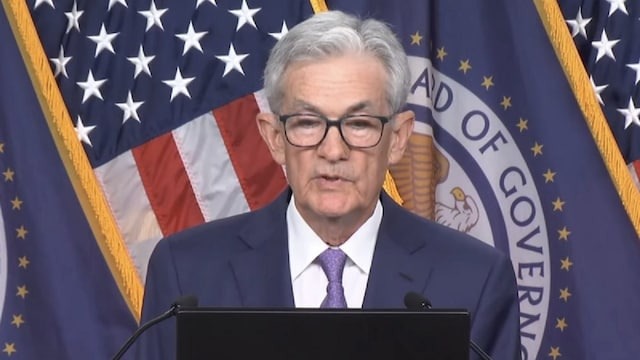
There was continuous selling in the stock market in the month of October and the market searched for its support level throughout the month. Due to FII selling, high valuation, and China factor, there was a sell-off in the markets throughout the month.
The Sensex and Nifty 50 saw their worst month in terms of continuous sell-offs since March 2020, when the markets crashed after the announcement of the COVID-19 lockdown. The COVID-19 market crash was one of the worst corrections seen in the history of D-Street, with benchmark indices falling over 23%.
After almost four and a half years, the Indian stock market is once again at a crossroads and facing another massive sell-off, primarily due to an outflow of over Rs 1 lakh crore in equity investments by foreign institutional investors (FIIs) and a sluggish second-quarter earnings season.
In October, the Sensex fell 5.82%, while the Nifty 50 fell 6.22%. From their record highs, the Sensex is down 7.66% and the Nifty 50 is down 7.88%.
The total market capitalization of all stocks listed on the BSE declined by Rs 29.41 lakh crore in the month as losses in the market widened.
What is the reason for the sell-off in October
The selling by foreign institutional investors (FIIs) has been the highest selling by foreigners in a single month, far exceeding the selling seen during COVID-19. The selling by FIIs in October stood at Rs 1,13,858 crore, which is the highest ever selling by them in a single month.
Corporate earnings i.e. the quarterly results of the company have also been disappointing for investors. Apart from this, the Chinese market, which rose by more than 30 percent in the second fortnight of September, also pulled money from Indian equities.
Factors that further increased D-Street's troubles were large IPOs like Hyundai Motor India and the promoters of many companies raising funds using the QIP route, which led to the withdrawal of funds from the secondary market.
Geo-political tensions and uncertainty about the result of the US election to be held next month are also contributing to the recent market correction.
What to expect from the stock market ahead
VK Vijayakumar, Chief Investment Strategist, Geojit Financial Services, said that FPIs are likely to continue selling going forward, as the market's uptrend weakened due to increasing tensions in the Middle East and uncertainty over the results of the US presidential election. He said, "The rally in Chinese stocks seems to be waning, as shown by the declining trend in the Shanghai and Hang Seng indexes in recent days. Given the high valuation in India, FPIs may continue selling, which may put a stop to any potential uptrend in the market." He said that global markets will react to the US presidential elections for the next few days, after which fundamental factors like US GDP growth, inflation, and interest rate cuts by the Fed will influence the market movement. Aditya Agarwal, Head of Derivatives and Technical Analyst at Sanctum Wealth, is optimistic about the Indian markets and expects the index to give mid-double-digit returns over 12 months. However, from a short-term perspective, the markets will remain volatile and may see a decline of 4-5 percent. We prefer large-cap stocks over mid- and small-caps and expect the heavyweights to outperform over the next 12 months.
Rajesh Bhatia, CIO of ITI AMC, says that we should lower our expectations a bit. If we can get a return of 10 to 12 percent in Nifty in the next 12 months, it will not be bad. It will be a good return.

 Desk
Desk Share
Share






